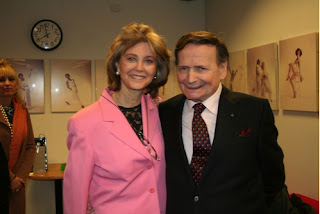Lastnight at Artpark, watching "Amadeus," I got to thinking.
About the Requiem.
It is so fitting how it has the last Kochel number, 626.
Listening to the Requiem it seems pretty obvious that Mozart was writing it for himself. I do not think you need a fanciful mind to think that. It has this kind of terror in it, and then this consolation, that sounds like a man working through his own feelings about death.
Here is another thing.
There are scholars who try to tell us that Mozart was doing fine up until the end, that there was no reason he would have thought he was dying. And I know, because I've read all his letters, how he did not dwell on dark matters, he was thinking about his wife, about his kid in boarding school, etc.
But here is what is weird. Right when you come around to these scholars' way of thinking, there is that business about the Requiem. About the man in gray who came to his door and, probably, scared the daylights out of him. It would scare the daylights out of anyone, this nameless, faceless stranger asking you to write a Requiem. And here was Mozart, mentally ill from overwork and stress.
That story about the man in gray, nothing makes it work.
The scholars try to blow the cobwebs off it, say you know what, it was just that this nobleman,
Franz von Walsegg. He lived in Stuppach Castle, near Gloggnitz. Which, only Germans could come up with such an address! I can say that being German.
Von Walsegg's wife had died, and he wanted to commission a Requiem for her and pass it off as his own. He was in the habit of commissioning music like this, music he could pass off as his own.So he sent this masked man to Mozart. See, kiddies? No worries. It can all be explained. La la la la la la la.
You know what?
That is one WEIRD story!!!!
Why do people insist on feeding it to us as if it were normal?
That is at least as weird a story as Salieri poisoning Mozart.
This von Walsegg, what the heck? Did he commission other composers? Cherubini, say, or Michael Haydn, or Carl Ditters von Dittersdorf, did they ever get this man in gray knocking at their door? If they did, I never heard about it. Plus, what a weird way of operating! Why didn't anyone tell him to stop it?
Vienna has to have been kind of a small town the way Buffalo is a small town. People must have known each other's business. Why didn't it get back to Mozart, what was going on?
All these things, going through my head, watching "Amadeus." At the end of it, you know what was weird, I was crying. It had nothing to do with Salieri or anything. I kind of tuned out that part of the plot. It does not interest me that much. I just feel bad about everything that happened to Mozart, that he died like that. It was just such a shame.
And so weird.


























































